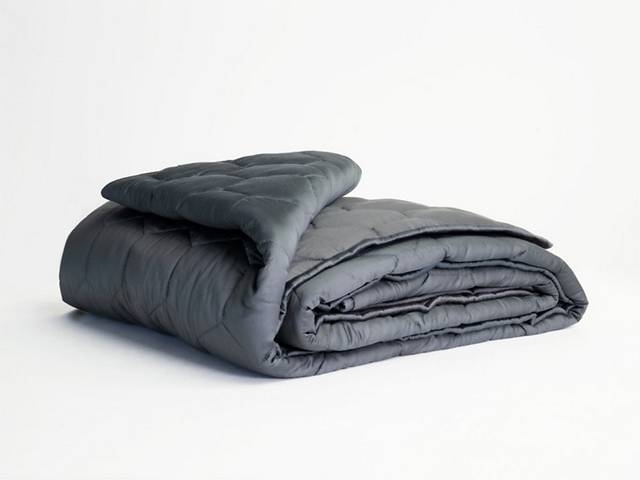Eco-Friendly Lifestyle

5 Simple Ways to Live a More Eco-Friendly Lifestyle
It is 2021, and the world has finally started to become more environmentally conscious. Several companies are making use of biodegradable materials to make their packaging, and an increasing number of restaurants and bars have started to get rid of plastic straws.
Even though these things help to make our future more eco-friendly, you've still got several steps to take as a contribution towards a more eco-friendly lifestyle. From watching what you eat to reducing water usage, below are some tips on how you can have a more eco-friendly lifestyle.
1. Eat Less Meat
Even though you may have never thought that changing your diet can have a positive effect on our environment, consuming less meat can be very impactful when you are trying to live a more environmentally friendly lifestyle. Currently, over 30% of the surface of the earth is used in raising livestock. The United Nations stated that the "livestock sector accounts for 9 percent of CO2 deriving from human-related activities, but produces a much larger share of even more harmful greenhouse gases. It generates 65 percent of human-related nitrous oxide, which has 296 times the Global Warming Potential (GWP) of CO2."
When you reduce your meat intake, you're playing a part in reducing the emissions of greenhouse gas. Eating less meat will also help reduce deforestation and preserve wildlife's natural habitat.
So, you should try to eat more fruits and vegetables, or even try to go full vegetarian one or two days weekly. For life to be easier, you can start with Meatless Mondays.
2. Do Away With Plastics
Plastics never go away. At the moment, there are billions of kilos of it in swirling convergence that make up around 40% of the global ocean surfaces. Yearly, thousands of seals, sea turtles, seabirds, and other marine animals are killed when they get tangled up in plastic or ingest it.
You can begin by reducing your plastic waste in some easy steps: shop with reusable bags, boycott single-use straws, bags, water bottles, and don't use products packaged in or made from plastic whenever you can.
3. Ditch wildlife-endangering products
It is illegal to trade, import, buy, or sell any product that is made from animals on the list of endangered species. Even though some plants and animals haven't been added to the list yet, they can still be harmed for the profit of someone.
Some products also threaten the habitat of endangered species, such as using up the water needed by riparian species to survive and cutting down old forests. So you won't contribute to wildlife endangerment, shop conscientiously, and search for products made using sustainable materials such as bamboo, and one of these products is a bamboo weighted blanket. You should also go to restaurants that do not serve imperiled species, such as bluefin tuna.
4. Use water wisely
Don't use that bottled water. Companies that make bottled water try to make us feel tap water isn't safe, even though your faucet water is practically free, and several city faucet waters have won taste tests and quality tests against bottled water. And the water extraction and production of plastic bottles are very much harmful to wildlife and communities.
Conservation of water is also important, particularly as our ever-growing population makes us have increased demand for the country's water sources. To conserve water, you can take shorter showers, fix leaky toilets, and choose low-water and low-flow appliance options. You can also decide to xeriscape your yard. Xeriscaping is a way of landscaping that needs less maintenance and water and offers food and habitat for bees and birds.
5. Use less energy powered by fossil fuel
We've got several ways of reducing our usage of energy at home. Alongside protecting our environment and adding to the emission of greenhouse gases, you can save very much on energy when you do this.
Unplug your appliances when you're not using them. This theory also applies to other electronics such as cell phone chargers since several devices draw electricity even when you're not using them. Use cold water to wash your clothes whenever you can, and use a drying rack or clothesline to try them instead of using a dryer.
When the light bulbs in your home burn out, replace them with ones that are more eco-friendly. CFLs, or compact fluorescent lights, make use of way less electricity compared to incandescent bulbs, and they last 5× longer. You can also decide to go for LED bulbs.
Reducing the amount of energy we use at home is as seamless as changing a few things. Even remembering to turn off the television or switch off the lights as soon as you leave a room can help you become more eco-friendly.
Even though these things help to make our future more eco-friendly, you've still got several steps to take as a contribution towards a more eco-friendly lifestyle. From watching what you eat to reducing water usage, below are some tips on how you can have a more eco-friendly lifestyle.
1. Eat Less Meat
Even though you may have never thought that changing your diet can have a positive effect on our environment, consuming less meat can be very impactful when you are trying to live a more environmentally friendly lifestyle. Currently, over 30% of the surface of the earth is used in raising livestock. The United Nations stated that the "livestock sector accounts for 9 percent of CO2 deriving from human-related activities, but produces a much larger share of even more harmful greenhouse gases. It generates 65 percent of human-related nitrous oxide, which has 296 times the Global Warming Potential (GWP) of CO2."
When you reduce your meat intake, you're playing a part in reducing the emissions of greenhouse gas. Eating less meat will also help reduce deforestation and preserve wildlife's natural habitat.
So, you should try to eat more fruits and vegetables, or even try to go full vegetarian one or two days weekly. For life to be easier, you can start with Meatless Mondays.
2. Do Away With Plastics
Plastics never go away. At the moment, there are billions of kilos of it in swirling convergence that make up around 40% of the global ocean surfaces. Yearly, thousands of seals, sea turtles, seabirds, and other marine animals are killed when they get tangled up in plastic or ingest it.
You can begin by reducing your plastic waste in some easy steps: shop with reusable bags, boycott single-use straws, bags, water bottles, and don't use products packaged in or made from plastic whenever you can.
3. Ditch wildlife-endangering products
It is illegal to trade, import, buy, or sell any product that is made from animals on the list of endangered species. Even though some plants and animals haven't been added to the list yet, they can still be harmed for the profit of someone.
Some products also threaten the habitat of endangered species, such as using up the water needed by riparian species to survive and cutting down old forests. So you won't contribute to wildlife endangerment, shop conscientiously, and search for products made using sustainable materials such as bamboo, and one of these products is a bamboo weighted blanket. You should also go to restaurants that do not serve imperiled species, such as bluefin tuna.
4. Use water wisely
Don't use that bottled water. Companies that make bottled water try to make us feel tap water isn't safe, even though your faucet water is practically free, and several city faucet waters have won taste tests and quality tests against bottled water. And the water extraction and production of plastic bottles are very much harmful to wildlife and communities.
Conservation of water is also important, particularly as our ever-growing population makes us have increased demand for the country's water sources. To conserve water, you can take shorter showers, fix leaky toilets, and choose low-water and low-flow appliance options. You can also decide to xeriscape your yard. Xeriscaping is a way of landscaping that needs less maintenance and water and offers food and habitat for bees and birds.
5. Use less energy powered by fossil fuel
We've got several ways of reducing our usage of energy at home. Alongside protecting our environment and adding to the emission of greenhouse gases, you can save very much on energy when you do this.
Unplug your appliances when you're not using them. This theory also applies to other electronics such as cell phone chargers since several devices draw electricity even when you're not using them. Use cold water to wash your clothes whenever you can, and use a drying rack or clothesline to try them instead of using a dryer.
When the light bulbs in your home burn out, replace them with ones that are more eco-friendly. CFLs, or compact fluorescent lights, make use of way less electricity compared to incandescent bulbs, and they last 5× longer. You can also decide to go for LED bulbs.
Reducing the amount of energy we use at home is as seamless as changing a few things. Even remembering to turn off the television or switch off the lights as soon as you leave a room can help you become more eco-friendly.
MORE





